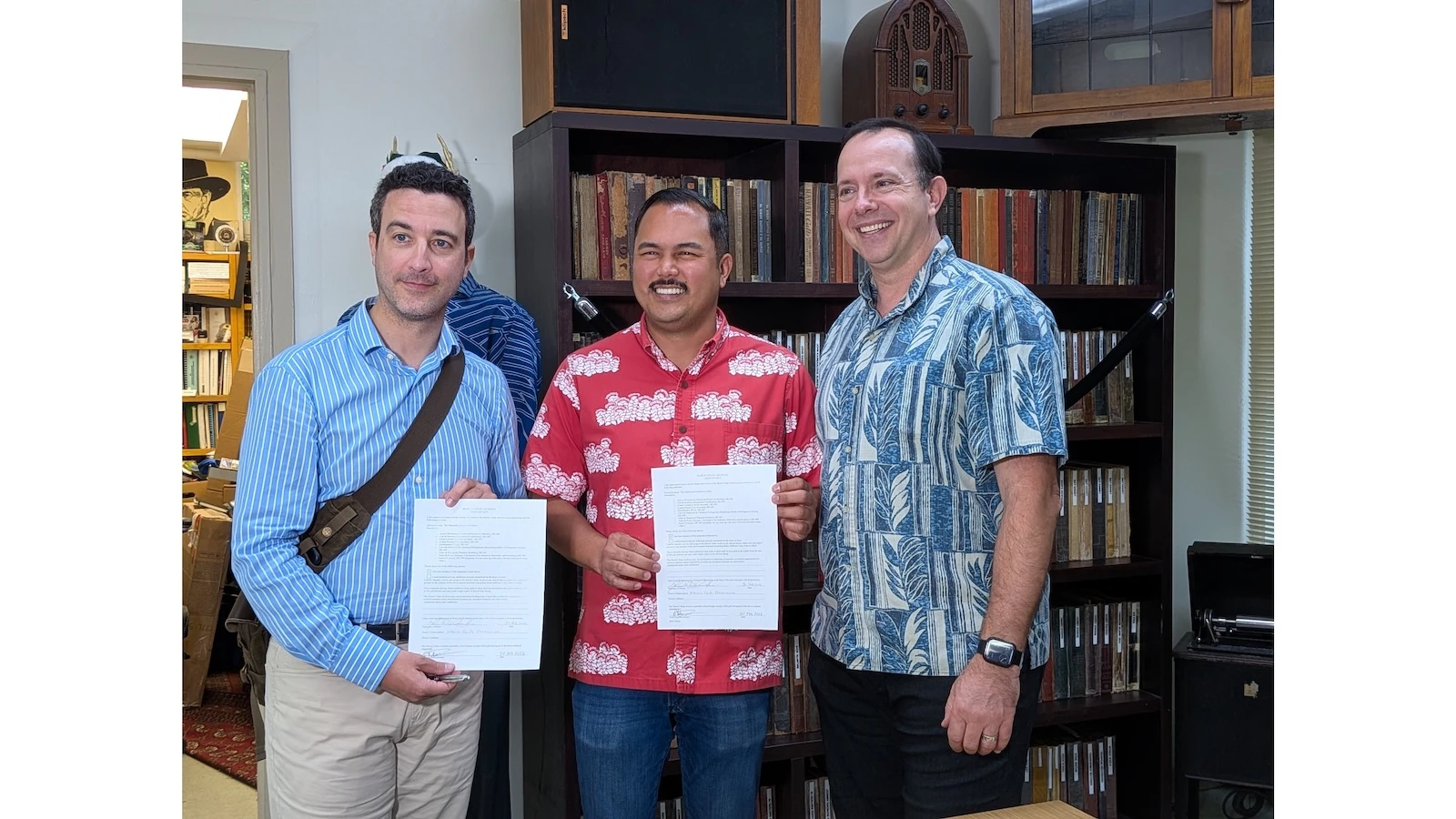The U.S. Congress reconvened last week with a flurry of activity and passed 31 bills through one or both chambers.
On top of the bill requiring the release of the government’s files relating to Jeffrey Epstein — which President Donald Trump signed into law on Wednesday — the U.S. House of Representatives voted to pass 20 new bills last week, and the Senate another 11.
Here’s every one of those bills and how Hawai‘i's elected officials voted on them.
Police
• The Common-Sense Law Enforcement and Accountability Now in D.C. Act, which repeals a 2022 D.C. law that prohibited the use of neck restraints by police officers, tightened reporting requirements involving bodycam footage from D.C. Metropolitan Police officers, limited the power of the Metropolitan Police to carry out non-warrant searches, restricted the purchase of military weaponry by the police, and other police reforms. Passed the House 233-190, with Hawai‘i Representatives Ed Case and Jill Tokuda voting against. The bill next goes before the Senate.
• The District of Columbia Cash Bail Reform Act, removing the possibility of bail for people in D.C. charged with a violent or dangerous crime, and requiring cash bail for the release of people charged with public safety or public order offenses. Passed the House 237-179, Case and Tokuda against.
• The Countering Threats and Attacks on Our Judges Act establishes a “State Judicial Threat Intelligence and Resource Center,” which monitors threats to judges and court staff and coordinates with law enforcement agencies to ensure their safety. Passed Senate unanimously, including with the support of Hawai‘i Senators Brian Schatz and Mazie Hirono.
Veterans Affairs
• The Veterans’ Compensation Cost-of-Living Adjustment Act, requiring the Department of Veterans Affairs to increase its compensation payments by the same percentage as the Social Security cost-of-living adjustments. House agreed to bill to by voice vote; no recorded objections. It now goes to Trump’s desk for his signature.
• The Veteran Fraud Reimbursement Act, which requires the VA to still issue benefit payments even if the VA is determining whether a previous misuse of benefits occurred due to VA negligence. Passed Senate unanimously.
• The Fairness for Servicemembers and their Families Act, requiring the VA to periodically review the maximum coverage available under its servicemember and veteran life insurance programs, taking into account increasing consumer price indices. Passed Senate unanimously.
• The Montgomery GI Bill Selected Reserves Tuition Fairness Actprohibits the education benefits of the Montgomery GI Bill to be used for course provided by institutions charging higher than in-state tuition. Passed Senate unanimously.
• The Fallen Servicemembers Religious Heritage Restoration Act, establishing a program identifying Jewish American soldiers buried overseas in graves incorrectly indicating they were not Jewish. The program would also identify and contact next-of-kin. Passed Senate unanimously.
Homeland Security
• The Department of Homeland Security Vehicular Terrorism Prevention and Mitigation Act requires DHS to draft a report assessing the threat of vehicular terrorism around the nation, prompted in part by an incident on New Year’s Day when a terrorist drove a pickup truck into a crowd, killing 14 and injuring 57. The bill passed 400-15, with Hawai‘i’s representatives Ed Case and Jill Tokuda in favor.
• The Generative AI Terrorism Risk Assessment Actrequires DHS to periodically report on terrorist threats to the U.S. posed by the use of generative artificial intelligence, such as the use of such technology to spread “violent extremist messaging” or to otherwise “enhance their ability to develop or deploy chemical, biological, radiological or nuclear weapons.” House agreed to bill to by voice vote; no recorded objections.
• The Providing Emotional Assistance with Relief and Love Act, or PEARL Act, requires U.S. Customs and Border Protection to develop a three-year pilot program adopting dogs from local animal shelters to become support dogs for CBP’s Support Canine Program, to be used for grief assistance, trauma mitigation and morale. House agreed to bill to by voice vote; no recorded objections.
• The National Strategy for School Security Act requires DHS to develop a national strategy to shield elementary and secondary schools from terrorist acts. House agreed to bill to by voice vote; no recorded objections.
• The Strengthening Cyber Resilience Against State-Sponsored Threats Act creates a joint task force between DHS, the FBI, the Department of Justice and other agencies to assess and respond to cybersecurity threats posed by state-sponsored agencies, specifically name-dropping Volt Typhoon, a cyberwarfare group believed to be affiliated with the Chinese government. Passed the House 402-8, with Case and Tokuda in favor.
• The Tren de Aragua Border Security Threat Assessment Act, requiring DHS to develop an assessment of potential threats from the Venezuelan crime organization Tren de Aragua, which Trump declared a foreign terrorist organization in January. House agreed to bill to by voice vote; no recorded objections.
• The Combatting International Drug Trafficking and Human Smuggling Partnership Act, a measure expanding CBP activity in foreign countries, permitting CBP officers to provide support to foreign governments in monitoring, tracking and deterring drug smuggling and related activities, and authorizing the use of funds to pay claims for monetary damages made against the U.S. House agreed to bill to by voice vote; no recorded objections.
• The Enhancing Stakeholder Support and Outreach for Preparedness Grants Act, requiring the Federal Emergency Management Agency to review effectiveness and feedback for awardees of certain homeland security grants. Passed 380-45, Case and Tokuda in favor.
• The Protecting Information by Local Leaders for Agency Resilience Act, or PILLAR Act, extends the State and Local Cybersecurity Grant Program — which provides grants to states for cybersecurity improvements — through the 2035 fiscal year. House agreed to bill by voice vote; no recorded objections.
• The Strengthening Oversight of DHS Intelligence Act, a measure requiring that any information gathered under the 2002 Homeland Security Act is “shared, retained and disseminated in a manner consistent with the protection of civil rights and civil liberties,” and requiring DHS to provide training to employees as such. House agreed to bill by voice vote; no recorded objections.
• The DHS Intelligence Rotational Assignment Program and Law Enforcement Support Act, a measure requiring all members of DHS’ intelligence department to participate in the department’s Civilian Joint Duty Program, which offers joint assignments between civilian professionals and DHS personnel. House agreed to bill to by voice vote; no recorded objections.
• The Syria Terrorism Threat Assessment Actrequires DHS to draft an assessment of terrorist threats posed by individuals or organizations within Syria. House agreed to bill to by voice vote; no recorded objections.
Environment
• The Researching Efficient Federal Improvements for Necessary Energy Refining Act, or the REFINER Act, requires a report by the National Petroleum Council on petrochemical refineries in the U.S., including analyses of how they could be expanded and any government actions that could have led to a decline in their productivity. Passed the House 230-176, with Case and Tokuda voting against.
• The Research for Environmental Uses and Sustainable Economies Act, or REUSE Act, would have the Environmental Protection Agency develop a series of best practices relating to reuse and refill programs for products such as beverage containers. Passed Senate unanimously.
• The Strategies to Eliminate Waste and Accelerate Recycling Development Act, or STEWARD Act, establishes a pilot grant program within the EPA for recycling programs within underserved communities. Grantees could receive between $500,000 and $15 million. Passed Senate unanimously.
• The Legacy Mine Cleanup Act, which requires the EPA to establish a cleanup plan for disused mines across the U.S., particularly for disused uranium mines within the Navajo Nation. Passed House unanimously.
• The Save Our Seas 2.0 Marine Debris Infrastructure Programs Reauthorization Actextends the life of an EPA plastic waste reduction grant program from 2025 to 2030. Passed Senate unanimously.
• The Great Lakes Fishery Research Reauthorization Act similarly extends a program funding a series of research fisheries within the Great Lakes Basin. Passed Senate unanimously.
Milk
• The Whole Milk for Healthy Kids Act revises the U.S. Department of Agriculture’s school lunch program requirements vis-à-vis milk. Current requirements only allow for fat-free or low-fat milk, whereas the new requirements would also allow for whole milk. Passed Senate unanimously.
• The Bottles and Breastfeeding Equipment Screening Enhancement Actrequires the Transportation Security Administration to revise its screening policies for items related to the storage and cooling of breast milk. House agreed to bill to by voice vote; no recorded objections.
Other
• The Taiwan Assurance Implementation Actrequires the State Department to prepare biennial reviews of the country's relationship with Taiwan, including evaluations of potential means to remove self-imposed restrictions on those relationships. Passed Senate unanimously.
•An unnamed bill, H.R. 6019, repeals a senator’s right to sue the federal government if that senator’s computer data was accessed by an internet service provider without following proper notice requirements. Passed House unanimously.
• The Unlocking our Domestic LNG Potential Actrepeals certain restrictions on the import and export of natural gas and grants the Federal Energy Regulatory Commission exclusive authority to approve or deny the development of facilities to import or export natural gas. Passed House 217-188, Case and Tokuda opposed.
For the latest news of Hawai‘i, sign up here for our free Daily Edition newsletter.





